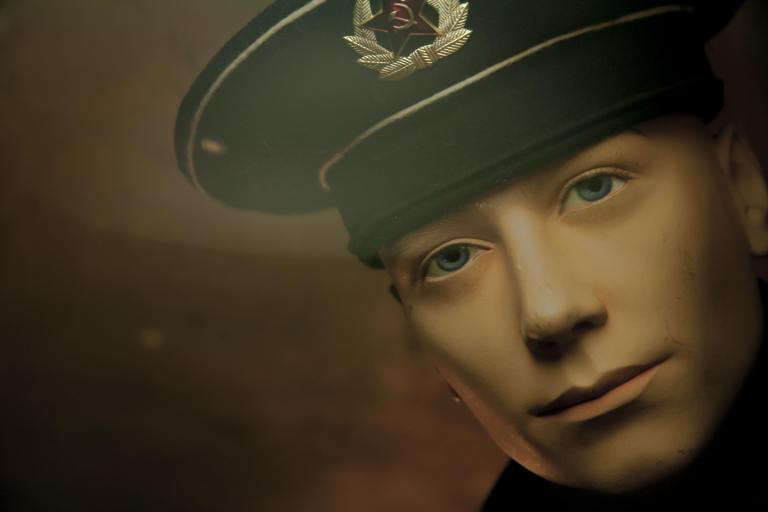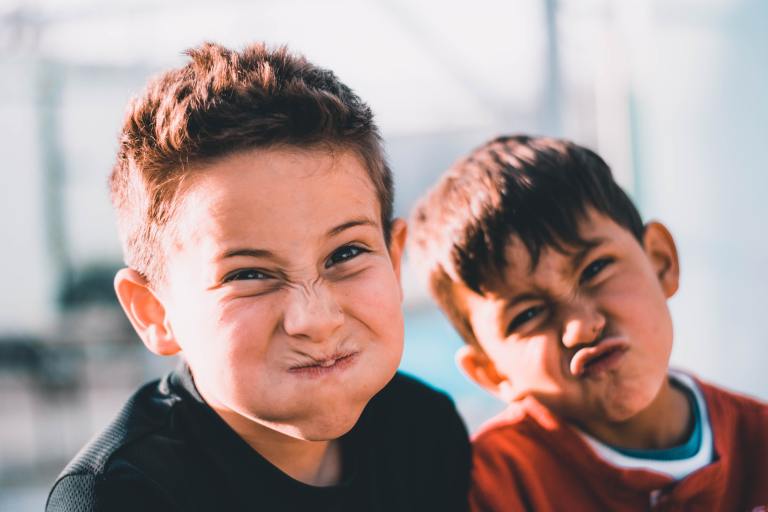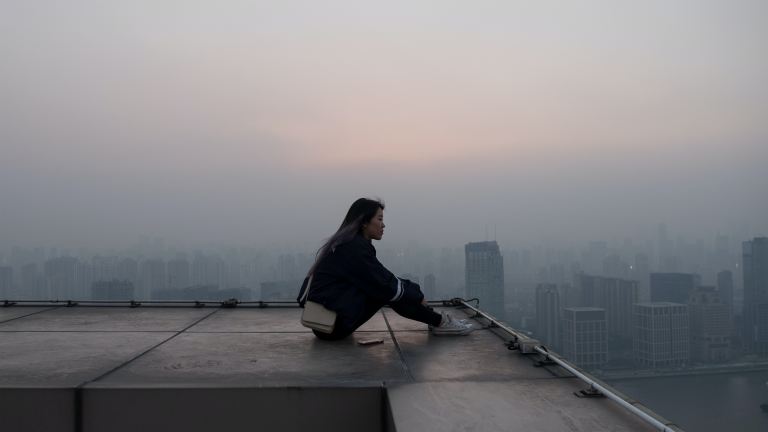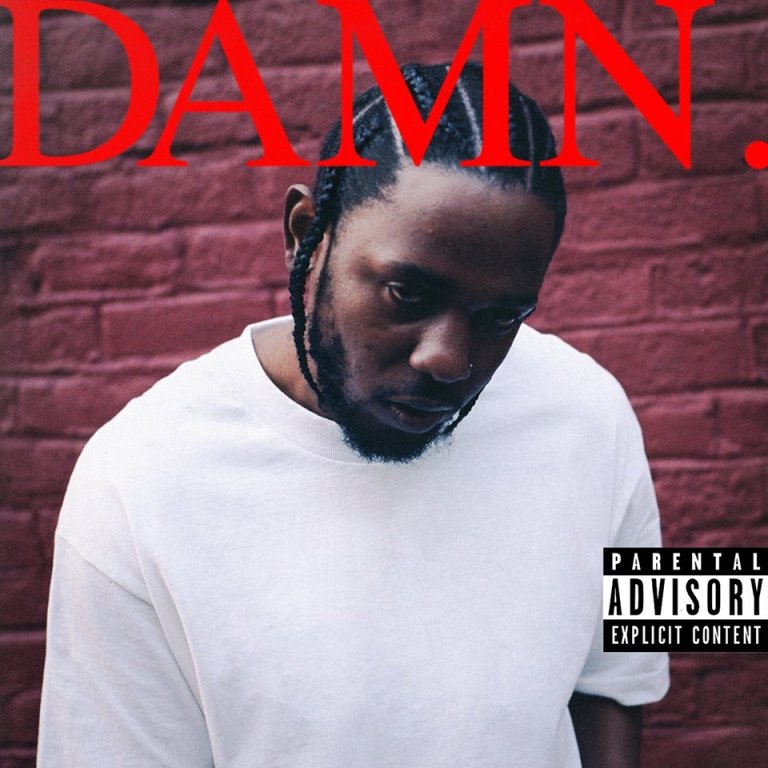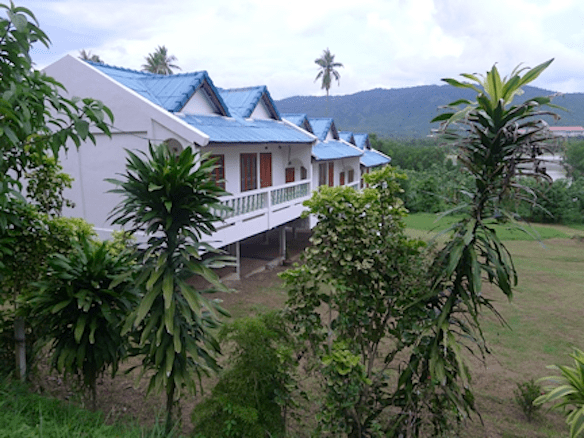
My Interview With The World’s Youngest Ibogaine Provider
At 27, Shea Prueger is the world's youngest ibogaine provider, and since the May 2013 opening of her clinic in Koh Samui, Thailand, the former model has received countless death threats, her house has been broken into, and she was attacked in an alley.

At 27, Shea Prueger is the world’s youngest ibogaine provider, and since the May 2013 opening of her clinic in Koh Samui, Thailand, the former model has received countless death threats, her house has been broken into, and she was attacked in an alley. Encountering this kind of behavior is expected when working with anything deemed a Schedule 1 Narcotic (illegal) in America, especially one that has a reputation of getting junkies clean.
Shea, who first heard of ibogaine when battling her own opiate addiction, is in the process of opening a new center in Thailand. I managed to track down the American expat via email, in the treehouse she’s currently living in, to chat about how ibogaine works, why she’s being threatened, and what to expect from her new center.

Kristy Ann Muniz: What is ibogaine?
Shea Prueger: Ibogaine is a naturally occurring psychoactive alkaloid derived from the west equatorial African shrub, tabernanthe iboga. In large doses, it produces a dream-like, hallucinatory, rapid eye movement state. The entire experience can last anywhere from 18-48 hours. Everyone experiences something different. However, many people report seeing early childhood memories, insight related to the reason they seeked out treatment, ancestral-related visions, traumatic life events, psychological introspection, and scenes related to identifications of the self our ego relies on.
In western Africa, the Bwiti belief system uses the iboga root bark as a sacred sacrament. Participants take it in a large dose as an initiation into their tribe, a spiritual quest, a sort of “coming-of-age” ritual. The Bwiti have been using iboga for hundreds of years; their knowledge of iboga is said to have come from the Pygmies.
In recent years, the anti-addictive properties of ibogaine have been discovered, most notably, its ability to eliminate opiate withdrawal symptoms. In the west, it is used primarily to interrupt addiction to substances such as heroin, cocaine, methamphetamine, nicotine, and alcohol. In even more recent years, the psychological benefits of a single ibogaine session are becoming more established and well-known. This has allowed treatment of disorders such as PTSD and asymptomatic depression to become more common.
How does ibogaine work?
It would be arrogant for me to pretend I knew how to answer this, but I’ll try. Ibogaine re-wires the brain to a pre-addicted state. Opiate users come out 36 hours later as if they’ve never taken an opiate and their cravings will be eliminated or greatly diminished. It’s like you’ve sent an addict to a 28-day program and then they stayed clean for a year-and-a-half afterwards, except ibogaine does all of this in a matter of a few days.
Imagine you hired the best secretary in the world to come into your office and clean up everything. Your office has been a mess for years. Filing cabinets with cobwebs. Files that have no order. The secretary comes in and throws out everything that shouldn’t be there. Files are put in an order that makes sense. The cobwebs are cleared. You come back into your office a couple days later and feel totally refreshed. Everything makes sense.
Now, in a more literal sense, Ibogaine is metabolized in the liver into the metabolite noribogaine. Noribogaine resets and fortifies your pleasure receptors, the place substances such as opiates hook onto. The metabolite interacts with your central nervous system through endorphin initiation, GABA and dopamine regulation, and revitalization of the endocrine glandular system. In simple terms, it’s a huge reset button for your brain, resetting the brain’s chemistry to a “pre-addicted” state.
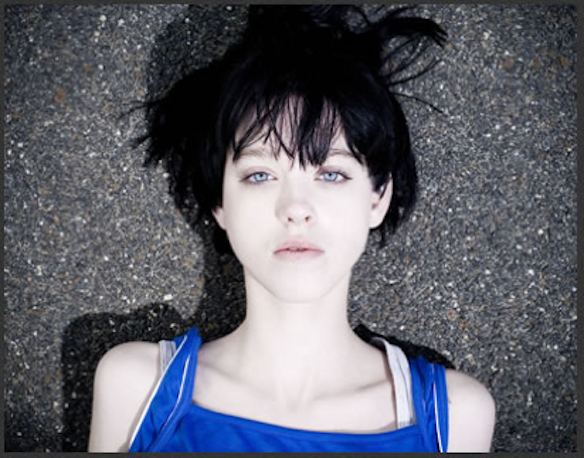
What was your personal experience with ibogaine like and had you previously tried other methods of getting clean?
I was surprised; it wasn’t what I expected in the slightest. It was beautiful. It was intense. And at times, made me hate myself. It wasn’t scary at all, and I expected it to be. I had tried everything to get off opiates, and ibogaine is the only thing that stuck. Methadone, suboxone – these were disguised addictions, veiled by a doctor prescription.
I’ve never been to rehab. I went to outpatient rehab in London and it was the biggest joke on the planet. This is where I was introduced to methadone. The daily trip to the pharmacy to take the shot of green syrup in a paper cup became a daily ritual. It was awful. And it didn’t work. I’ve been to two psychiatrists. One of those psychiatrists is responsible for my battle with suboxone, which was the biggest battle of them all. The maintenance opiate situation in America and Europe is a fucking shame. The greatest thing about ibogaine is that it worked.
Why are people attempting to sabotage your center in Thailand?
I’m the barbershop that moved next door to the barbershop, except I came with the training of the most proficient and well-known barbers in the world – Eric Taub and Lex Kogan. That’s bound to make some people, who feel like this is their territory, unhappy.
You previously said that ibogaine has the worst community, why is that?
It’s hard to say why this kind of chaos seems to follow iboga. Maybe because ibogaine works and that isn’t good for a lot of people: It’s not good for the drug trade, the pharmaceutical industry, or the traditional rehab industry. Some people get into treating people for the wrong reasons, so sometimes it is money-related competition. And then, of course, you are dealing with people. A lot of providers are ex-addicts. You have ex-addicts, with possible unresolved issues, treating addicts with definite unresolved issues, and it can become complicated. People create alliances, people create enemies. The ibogaine community is small, but very polarized.
Can you describe what happened when you were attacked in the alley?
I was taking a walk around 10p.m. and noticed a car that had passed by me one too many times. At one point, the car sped ahead of me and then stopped. Someone jumped out from it and grabbed me. He had a knife and told me to get into the car. I’ve trained extensively in Pekiti Tirsia Kali for the last couple of years and am very grateful I knew how to handle the situation. I had a small flashlight on me with a serrated edge. Eventually, I hit the guy hard enough in the right spot and he released his grip on me. I ran and made it back to where I was staying. The only thing the guy said to me in English was, “You shouldn’t be in Thailand,” so I assumed it was ibogaine related, but you never know for sure.
What happened the night your house was broken into?
It was the only night I had left my house and I was only gone for a few hours. The windows were all locked and covered by bars, but the window in the kitchen had a tendency to get jammed. The lock on the kitchen door had been acting up the previous week, so I used the top lock on the door. Someone knew all of this. They pried the window open and somehow reached that second lock on the door. It was an inside job.
When I got home, I immediately noticed my laptop missing. I ran upstairs. My room was completely ransacked and destroyed. Everything of value was gone: My hard drive, even my journals. My safe was hacked. My EKG machine had been taken. All the medical necessities I had acquired since arriving to Thailand were gone. Anything that mattered to me was taken.
It was a direct hit on me and my business. It was a large, furnished house. The rest of the house, including a friend’s room, was left untouched. Three days prior, I had received a threatening email. The email stated that I needed to cease my work in Thailand immediately, and if I didn’t, further action would be taken to force me out. This is one of a series of threatening emails, but this email was by far the most vicious, and the most direct. That was a rough night.
You’ve said before that Asia has limited options for rehabilitation, why do you think that is?
I can’t speak for all of Asia. However, I’ve been living in and out of Asia for the last eight years. Addiction is largely covered up or ignored. The laws around narcotics are, to put it nicely, barbaric. In America, we go overboard with rehabilitation. Being distracted in school diagnoses you as ADHD and puts you on a “needs to be medicated” program. If the pharmaceutical industry had its way, every single person in America would have a “diagnosis” that came with a protocol of a lifetime of medication. That’s not the way to handle things, either.
While we go overboard, Americans have the resources to educate themselves properly and make their own decisions on how to handle their more serious issues. This isn’t the case in many parts of Asia, specifically SE Asia. There is no education regarding drug abuse or mental disorders and there is a great stigma attached to admitting to either of these issues. People coming from unfortunate circumstances often suffer from post-traumatic stress disorder and other ailments, but they will never even know what these terms mean. There is often no government funding to help the less fortunate and for the people who could afford proper care, the lack of qualified professionals is a real shame.
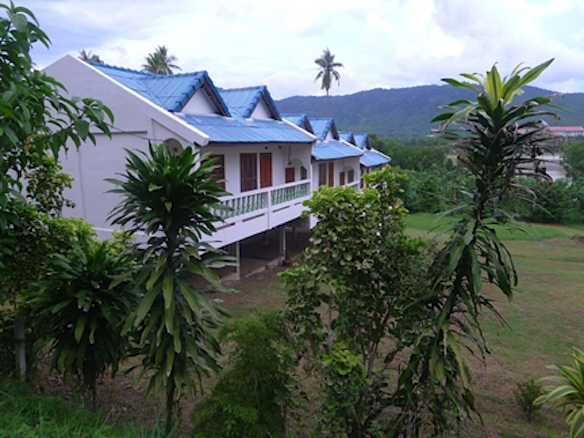
What’s your new ibogaine center going to be like?
My new center is still a branch of the I Begin Again family, led by Eric Taub – the western pioneer of the ibogaine movement – and Lex Kogan, a true genius when it comes to the medical aspects of ibogaine. I now have a partner, Subin. Subin has succeeded with several business ventures in southern Thailand. When he was eight, he was bit by a lethal snake. His mother took him to a hospital where they wanted to amputate his leg, but could not guarantee his survival. His mother dragged him out of the hospital and took him to a temple known for its mastery in snakebites. His mother told him, if he lived, he would dedicate time during his adult years as a monk in this temple. He lived. The herbal remedy worked. I visited him a couple times while he was a monk. He was very eager to share the herbal concoctions he was working on. He would spend all day brewing these teas that really were something special; they made me feel great.
While in the temple, Subin became much more interested in plant medicine. So, when he left the temple, he approached me about working together. When we officially open, ibogaine will still be the main focus. However, we will also be offering snakebite remedies and all of the temple detox and revitalization concoctions he has mastered. We’ve secured a two-acre piece of land with a beautiful six-bedroom property in a semi-remote area of the island. We will be growing all of the herbs ourselves. This new center, while still an ibogaine center, will be incorporating methods important to Thai culture. It will be a center that is respectful and essential to the community allowing us to be here. ![]()

